| |
Date |
Event(s) |
| 1 | 1835 | - 30 Nov 1835—21 Apr 1918: Mark Twain is born
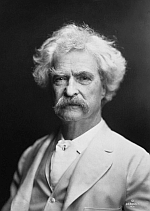
Samuel Langhorne Clemens (November 30, 1835 – April 21, 1910), known by his pen name Mark Twain, was an American writer, humorist, entrepreneur, publisher, and lecturer. He was praised as the "greatest humorist the United States has produced", and William Faulkner called him "the father of American literature". His novels include The Adventures of Tom Sawyer (1876) and its sequel, Adventures of Huckleberry Finn (1884), the latter of which has often been called the "Great American Novel".
|
| 2 | 1847 | - 11 Feb 1847—18 Oct 1931: Thomas Edison is born
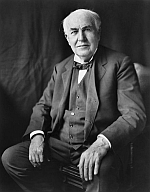
Thomas Alva Edison (February 11, 1847 – October 18, 1931) was an American inventor and businessman. He developed many devices in fields such as electric power generation, mass communication, sound recording, and motion pictures.[4] These inventions, which include the phonograph, the motion picture camera, and early versions of the electric light bulb, have had a widespread impact on the modern industrialized world.
- 3 Mar 1847—2 Aug 1922: Alexander Graham Bell is born
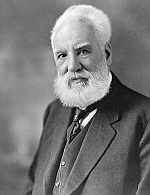
Alexander Graham Bell was a Scottish-born scientist, inventor, engineer, and innovator who is credited with inventing and patenting the first practical telephone. He also founded the American Telephone and Telegraph Company (AT&T) in 1885.
Bell's father, grandfather, and brother had all been associated with work on elocution and speech and both his mother and wife were deaf, profoundly influencing Bell's life's work. His research on hearing and speech further led him to experiment with hearing devices which eventually culminated in Bell being awarded the first U.S. patent for the telephone in 1876. Bell considered his invention an intrusion on his real work as a scientist and refused to have a telephone in his study.
|
| 3 | 1898 | - 21 Apr 1898—13 Aug 1898: Spanish-American War
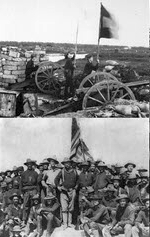
The Spanish–American War was fought between the United States and Spain in 1898. Hostilities began in the aftermath of the internal explosion of USS Maine in Havana Harbor in Cuba, leading to U.S. intervention in the Cuban War of Independence. U.S. acquisition of Spain's Pacific possessions led to its involvement in the Philippine Revolution and ultimately in the Philippine–American War.
The result was the 1898 Treaty of Paris, negotiated on terms favorable to the U.S. which allowed it temporary control of Cuba and ceded ownership of Puerto Rico, Guam, and the Philippine islands. The cession of the Philippines involved payment of $20 million ($602,320,000 today) to Spain by the U.S. to cover infrastructure owned by Spain.
|
| 4 | 1901 | - 1901: The Victor Talking Machine Company
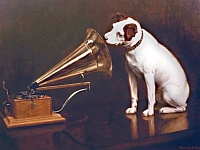
Emile Berliner, the inventor of the flat phonograph disc, sold his business to Eldridge Johnson in 1901 who created the Victor Talking Machine Company. It was in operation until 1929 when it was acquired by RCA.
The phonograph was invented in 1877 by Thomas Edison. Alexander Graham Bell's Volta Laboratory made several improvements in the 1880s and introduced the graphophone, including the use of wax-coated cardboard cylinders instead of Edison's foil cylinders
- 14 Sep 1901—4 Mar 1909: President Theodore Roosevelt
26th President of the United States. Born Oct. 27, 1858. Died Jan. 6, 1919 at the age of 61.
|
| 5 | 1903 | - 1903: First Sustained Flight
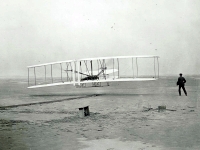
The Wright Flyer (also known as the Kitty Hawk Flyer I or the 1903 Flyer) made the first sustained flight by a manned heavier-than-air powered and controlled aircraft—an airplane—on December 17, 1903. Invented and flown by Orville and Wilbur Wright, it marked the beginning of the pioneer era of aviation.
The Wright brothers flew it four times in a location now part of the town of Kill Devil Hills, about 4 miles (6 kilometers) south of Kitty Hawk, North Carolina. The airplane flew 852 ft (260 m) on its fourth and final flight, but was damaged on landing, and minutes later powerful gusts blew it over, wrecking it.
|
 Discovering My Ancestors
Discovering My Ancestors Discovering My Ancestors
Discovering My Ancestors